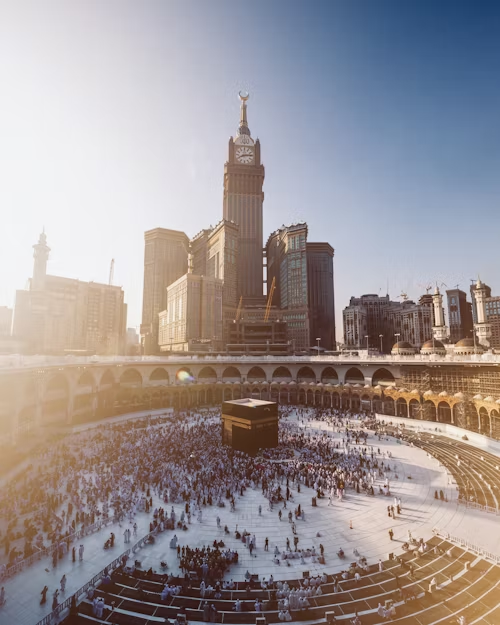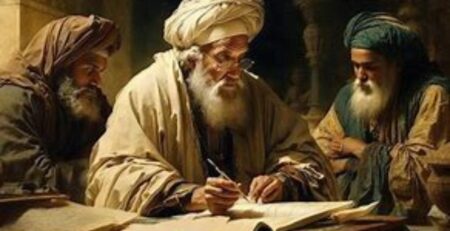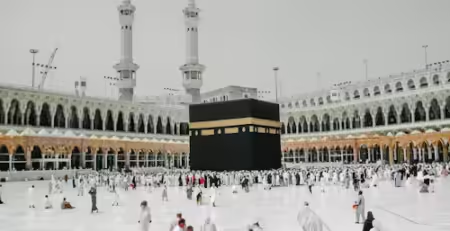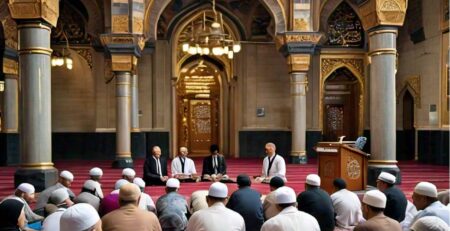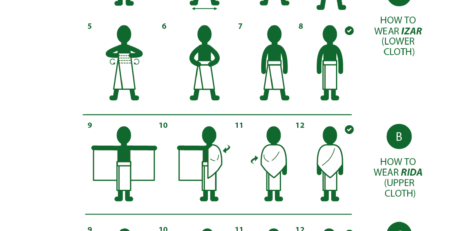The History of Umrah
Umrah, often referred to as the ‘lesser pilgrimage‘, holds significant historical and spiritual importance in Islam. While Hajj, the major pilgrimage, is obligatory for all Muslims who are physically and financially able, Umrah is a voluntary act of worship that can be performed at any time of the year. The history of Umrah is deeply intertwined with the early history of Islam and the life of the Prophet Muhammad (PBUH). This blog post delves into the origins, evolution, and enduring significance of Umrah. The origins of Umrah date back to the time of the Prophet Ibrahim (Abraham) and his son Ismail (Ishmael). According to Islamic tradition, Allah commanded Prophet Ibrahim to build the Kaaba, the sacred house of worship, in Makkah. With the help of his son Ismail, Prophet Ibrahim constructed the Kaaba, which became the central point of Islamic worship. Hazrat Hajra, the wife of Prophet Ibrahim, and their son Ismail rooted the rituals of Umrah in their actions. When Prophet Ibrahim left Hazrat Hajra and Ismail in the barren desert of Makkah as a test of faith, Hazrat Hajra ran between the hills of Safa and Marwah in search of water for her thirsty son. Pilgrims commemorate this act in the Sa’i ritual of Umrah by walking between the same hills. The significance of Umrah was further emphasized during the lifetime of the Prophet Muhammad (PBUH). Before the advent of Islam, the polytheistic tribes of Arabia used the Kaaba as a pilgrimage site. However, idolatry and pagan practices marred the rituals performed. In the sixth year of Hijra (628 CE), the Quraysh tribe prevented the Prophet Muhammad (PBUH) and his companions from entering Makkah to perform Umrah. This event led to the Treaty of Hudaybiyyah, a pivotal agreement that allowed the Muslims to perform Umrah the following year without interference. This peaceful negotiation marked a significant moment in Islamic history, demonstrating the importance of Umrah as an act of worship and a means of fostering peace and unity. In 629 CE, the Prophet Muhammad (PBUH) and his followers successfully performed Umrah, cleansing the Kaaba of its idols and reestablishing the monotheistic worship of Allah. This event, known as the First Umrah of Islam, reinforced the spiritual purity and significance of the pilgrimage. Over the centuries, Umrah has evolved into a well-organized and highly revered act of worship. The construction of infrastructure around the Haram in Makkah, including the expansion of the Masjid al-Haram and the development of modern amenities, has facilitated the pilgrimage for millions of Muslims from around the world. Despite these advancements, the core rituals of Umrah have remained unchanged, preserving the historical and spiritual essence of the pilgrimage. The continuity of these practices underscores the enduring connection between contemporary Muslims and their religious heritage. Umrah holds immense spiritual significance for Muslims. It is an opportunity to seek Allah’s mercy, forgiveness, and blessings. The pilgrimage allows Muslims to renew their faith, cleanse their souls, and reaffirm their commitment to Islamic principles. Culturally, Umrah serves as a unifying force, bringing together Muslims from diverse backgrounds and nationalities. The shared experience of performing Umrah fosters a sense of global Islamic brotherhood and solidarity. The history of Umrah is a testament to the enduring faith and devotion of Muslims throughout the ages. From its origins in the time of Prophet Ibrahim to its establishment by the Prophet Muhammad (PBUH) and its continued practice in the modern era, Umrah remains a profound spiritual journey that connects Muslims to their religious roots and to each other. As we reflect on the rich history of Umrah, it reminds us of the timeless values of faith, humility, and unity that it embodies. Whether you are preparing for your first Umrah or reflecting on past pilgrimages, the history and significance of this sacred journey offer deep insights and inspiration for every Muslim. If you need any help regarding application process and got any query, feel free to contact us. We are your true companions and we respect our dignity. If you want to know about how to apply for japan, click here. If you want to know about OUR HUNGARY STUDENT VISA, click here.
The Origins of Umrah
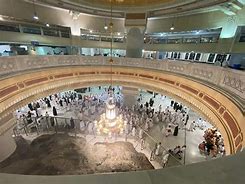
Umrah During the Prophet Muhammad’s Time
Evolution of Umrah Over the Centuries
The Spiritual and Cultural Significance of Umrah

Conclusion
Book an Appointment with Us:

Ask Anything

